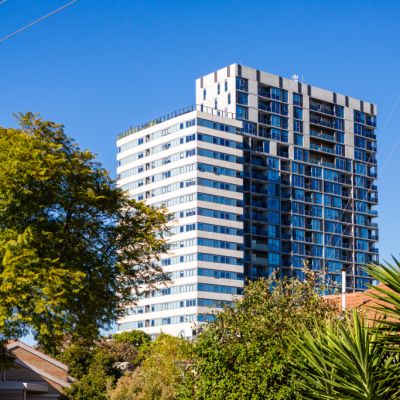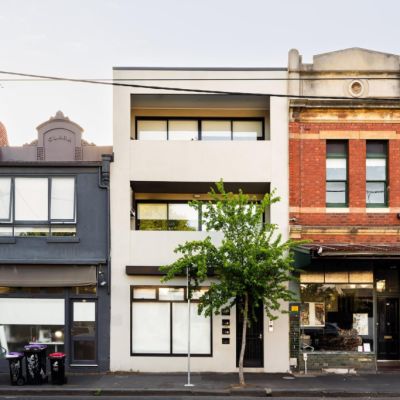The drastic changes needed for Australian rents to fall below their peaks
Australian renters will be out of luck if they are hoping for cheaper rents as experts forecast they will not return to lower levels despite a recent slowdown in growth.
It would take dramatic interest rate cuts, a massive number of new homes and a smaller population for the asking rents to fall below their records, experts say.
The combined capital median house rent remained at its high of $650 a week, in the September quarter, but up from $430 a week five years ago, the latest Domain Rent Report revealed. Units also remained at their peak of $630 a week, in the latest quarter, but up from $450 since September 2019.
House rents are now sky-high in Sydney ($775 a week), Melbourne ($580), Brisbane ($625) and Perth ($660), and units are not far behind.
PRD chief economist Dr Diaswati Mardiasmo said while some regional rents and capital city suburbs were stabilising, and others dropping up to 10 per cent, rental markets would not decline any further.
“But the expectation that they’ll more widely drop back or that they’ll fall further or even, as some have wished for, back to COVID levels, or pre-COVID levels, is quite unrealistic,” Mardiasmo said.
“That would be a massive drop as they’ve risen so much in the last five years. It would be impossible for landlords to go back to that level because they’re now facing much higher interest rates for their mortgage repayments, and higher still for their investor loans rather than those for owner-occupiers,” she said, noting other holding costs, such as council rates and insurance, had risen in the same time.
The fastest interest rate hikes in a generation were a major factor in the escalation of rents in the past four years, leaving mortgage holders with up to triple the interest rate in worst-case scenarios.
Mardiasmo said many landlords increased rents as a result to hold on to their investment properties and even a rate cut of 25 basis points would have little effect in the short term with tenants often on one-year leases.
Centre for Independent Studies chief economist Dr Peter Tulip said a huge surge of new properties would be needed for a substantial decline in asking rents.

“And we’d have to build a lot of housing for that to happen; hundreds of thousands of new houses, or even millions of dwellings,” Tulip said. “That would have to be a policy choice – as a society, we would have to decide whether we want housing to be affordable and for that to happen, we need to accept higher density in our inner suburbs. If we continue with our endless suburban sprawl, rents will keep increasing.
“But for anything to change, we need both a social and cultural shift. We need the government to take real action on increasing the supply of housing, and society needs to put the interests of renters and future home-buyers above the interests of existing home owners.”
Tulip said the case of Auckland in New Zealand, where rents at one point eclipsed those of Sydney, was an example of increased supply.
There, the council removed zoning restrictions to open up much of the city to higher density development, which led to an immediate surge in the number of new housing projects.
“As a result, rents there have fallen 28 per cent relative to other New Zealand cities,” said Tulip. “They are still high, but no longer stratospheric.”
BIS Oxford Economics head of macroeconomic forecasting Sean Langcake said any boost in the housing supply in Australia would still need to surpass population growth to make any difference.
Langcake said current population growth hovered around 0.9 per cent a year, which is a big figure for housing to equal, let alone exceed. Other factors that could temper demand, like young people moving back in with their parents or choosing share houses, would only constitute a drop in the ocean.
“The worst outcome is that rents would drop because of the whole market and economy was declining,” Langcake said. “That wouldn’t be a positive story at all. You have to be careful what you wish for.
“It’s more likely that the odd market comes off, but generally demand remains high with steady population growth, while government housing targets feel very aspirational. It’s hard to see rents falling back in a very big way. I think it’s more a question of how quickly are they going to go up, rather than when are they going to go down.”
We recommend
We thought you might like
States
Capital Cities
Capital Cities - Rentals
Popular Areas
Allhomes
More










